#Biodegradable Plastic Bags
Explore tagged Tumblr posts
Text
Biodegradable Plastic Bags: The Solution to Plastic Pollution
In today's world, plastic pollution has become a major environmental concern, harming ecosystems and wildlife. As a result, people are increasingly looking for sustainable alternatives to conventional plastic products. One such solution is biodegradable plastic bags. These eco-friendly bags are quickly gaining popularity as a better alternative to traditional plastic bags, which can take hundreds of years to decompose. In this article, we will explore the benefits of Biodegradable polythene bags, how they work, and why bio plastic bags could be the key to solving plastic pollution.
What Are Biodegradable Plastic Bags?
Biodegradable plastic bags are made from natural materials that break down over time when exposed to environmental elements such as heat, moisture, and microorganisms. Unlike traditional plastic bags, which are made from petroleum-based plastic polymers, biodegradable plastic bags are designed to decompose more quickly and leave behind fewer harmful residues. These bags offer a much more sustainable option, reducing the environmental footprint of everyday products.
How Do Biodegradable Plastic Bags Work?
Unlike regular plastic, which is durable and resistant to natural elements, Biodegradable plastic bags are engineered to break down when exposed to specific conditions. The key difference lies in the materials used to create these bags. Biodegradable polythene bags, for example, are made from polymers that are derived from renewable resources such as cornstarch, plant-based sugars, or other biodegradable materials. When exposed to the right environmental conditions, these polymers degrade through biological processes, often with the help of bacteria, fungi, or enzymes.
Some bio plastic bags are also designed to break down more quickly than others, depending on the additives and manufacturing process. This means they can decompose in a matter of months rather than decades, significantly reducing the negative environmental impact of traditional plastic waste.
The Environmental Impact of Traditional Plastic Bags
Traditional plastic bags are made from polyethylene, a synthetic polymer derived from fossil fuels. These bags are lightweight, durable, and cheap to produce, but they come with a significant environmental cost. The main issues with plastic bags include:
Slow Decomposition: Plastic bags can take up to 1,000 years to fully decompose in landfills or the ocean.
Harm to Wildlife: Animals often mistake plastic bags for food or become entangled in them, leading to injury or death.
Pollution: As plastic breaks down, it leaves behind microplastics that contaminate soil and water, affecting ecosystems.
With the increasing amount of plastic waste in our environment, finding alternatives to these harmful bags has never been more urgent. Biodegradable plastic bags offer a much-needed solution to these problems.

Why Are Biodegradable Plastic Bags Important?
The adoption of biodegradable polythene bags and other Bio plastic bags is crucial in addressing plastic pollution for several reasons:
1. Faster Decomposition
One of the primary advantages of biodegradable plastic bags is their ability to decompose more quickly than traditional plastic. While regular plastic bags may persist for hundreds of years, bio plastic bags break down in a matter of months or years, depending on the material and environmental conditions. This significantly reduces the long-term impact on the environment.
2. Reduced Harm to Wildlife
Wildlife, especially marine animals, often mistake plastic bags for food or get caught in them, leading to severe injuries or death. Biodegradable polythene bags are less likely to cause such problems because they break down before animals have a chance to ingest or become entangled in them.
3. Less Pollution
Unlike conventional plastic bags, biodegradable plastic bags degrade into natural elements that are less harmful to the environment. They break down into water, carbon dioxide, and organic matter, rather than leaving behind harmful microplastics that contaminate soil and waterways.
4. Made from Renewable Resources
Many bio plastic bags are produced using renewable resources like corn starch or other plant-based materials. This reduces dependence on petroleum-based plastics and helps conserve valuable natural resources. In addition, the production of biodegradable polythene bags often results in a smaller carbon footprint compared to conventional plastic bags.
The Benefits of Switching to Biodegradable Plastic Bags
The environmental benefits of biodegradable plastic bags extend beyond their ability to break down more quickly. Here are some key advantages of switching from traditional plastic to bio plastic bags:
1. Sustainability
By using plant-based materials and ensuring the bags break down naturally, biodegradable plastic bags are a more sustainable option compared to traditional plastic bags that persist in the environment for centuries.
2. Lower Environmental Impact
Since biodegradable polythene bags decompose faster and don't leave behind toxic residues, they help reduce pollution and support cleaner ecosystems. This contributes to the protection of wildlife and reduces the overall environmental burden of plastic waste.
3. Easier Waste Management
Biodegradable bags decompose naturally, making them easier to manage in waste disposal systems. In many cases, they can be composted, adding valuable organic matter to the soil. In contrast, traditional plastic bags often require special handling and take up a lot of space in landfills.
Are Biodegradable Plastic Bags the Ultimate Solution to Plastic Pollution?
While biodegradable plastic bags are undoubtedly a step in the right direction, they are not a complete solution to the global plastic pollution crisis. It’s important to note that biodegradable plastics still require specific conditions to break down efficiently, and if they end up in landfills or improperly disposed of, they may not decompose as intended.
That said, the shift towards biodegradable plastic bags is an important part of the broader effort to reduce plastic pollution. By transitioning from traditional plastic bags to more sustainable alternatives, we can significantly reduce the harmful effects of plastic waste on our environment.
What’s Next for Biodegradable Plastics?
The future of biodegradable plastic bags looks promising. As technology advances, we can expect to see even more eco-friendly options made from renewable resources that break down more efficiently. Innovations in the production of bio plastic bags will continue to improve their performance and make them a more viable alternative to conventional plastics.
Conclusion
The widespread use of biodegradable plastic bags is a significant step forward in the battle against plastic pollution. These bags offer a much more sustainable solution compared to traditional plastic bags, helping to reduce environmental damage and protect wildlife. However, they should be part of a larger strategy that includes reducing plastic usage, increasing recycling efforts, and investing in other innovative materials. By making conscious choices and supporting the development of eco-friendly alternatives, we can all contribute to a cleaner, greener planet.
FAQs
1. How long do biodegradable plastic bags take to decompose? It can take anywhere from a few months to a few years for biodegradable plastic bags to decompose, depending on the material and environmental conditions.
2. Can biodegradable plastic bags be composted? Yes, many biodegradable plastic bags are compostable, though it's important to follow local guidelines for composting.
3. Are biodegradable plastic bags as strong as regular plastic bags? Biodegradable plastic bags are generally as strong as traditional plastic bags, though their durability may vary depending on the material used.
0 notes
Text
How to Start a Biodegradable Plastic Bags Manufacturing Business
Want to turn your passion for sustainability into a thriving business? 🌍💼 Learn how to launch a biodegradable plastic bags manufacturing business and make a positive impact on the planet! #BiodegradableBags #sustainablebusiness #ecofriendlybusiness
The biodegradable plastic bag industry aims to create eco-friendly substitutes for conventional plastic bags. Biodegradable plastic bags are made to degrade more quickly in natural environments than ordinary plastics, which can take hundreds of years to break down. Usually composed of plant-based materials like sugarcane or cornstarch, these bags have a smaller environmental impact because they…
#biodegradable plastic bags#biodegradable plastic bags business#biodegradable products#biodegradable products industry#eco-conscious entrepreneurship#eco-friendly business opportunities#eco-friendly manufacturing#environmental business opportunities#green business ideas#green technology business#how to start a biodegradable plastic bags business#manufacturing green products#new business ideas 2024#plastic alternatives#profitable green business#profitable manufacturing business#profitable small business ideas#start a business#sustainable entrepreneurship#sustainable packaging#sustainable packaging solutions#sustainable startup
0 notes
Text
Biodegradable Products Manufacturers - Greendot Biopak
Greendot Biopak is a leading manufacturer and exporter of high-quality 100% biodegradable products in Gujarat, India. We specialize in producing environmentally friendly, compostable products that help reduce plastic waste and promote sustainability. Our product range includes disposable bags, shrink film, biodegradable resins, and compostable cutlery. These products are designed to decompose naturally, leaving no harmful residues behind. By choosing Greendot Biopak, you contribute to a cleaner environment and support eco-friendly practices. Our commitment to quality and innovation ensures that you receive the best biodegradable products that meet your needs and help protect our planet. Visit our site - https://www.greendotbiopak.com/
#Biodegradable Products#Biodegradable Plastic Bags#Biodegradable Material#Compostable Garbage Bags#Biodegradable Food Packaging#Compostable Resins#Compostable Plastic#Compostable Plastic Bags#Biodegradable Product Manufacturer#Disposable Bags Manufacturer#Disposable Garbage Bags Manufacturer#Sanitary Disposal Bags Manufacturer#Biodegradable Products In India
0 notes
Text
Compostable Bags for the Automobile Industry

In the fast-paced world of automobile manufacturing, sustainability is becoming increasingly important. Compostable bags offer a sustainable packaging solution that aligns with the industry's green initiatives.
Compostable bags for the automobile industry are made from plant-based materials such as cornstarch or sugarcane. These bags are designed to break into organic matter in composting facilities, leaving no harmful residues behind. This makes them an environmentally friendly alternative to traditional plastic bags.
One of the key benefits of compostable bags is their ability to reduce plastic waste. Using compostable bags instead of traditional plastic bags, automobile manufacturers can significantly reduce their environmental impact and contribute to a cleaner, healthier planet.
Compostable bags are also versatile and durable, making them suitable for a wide range of packaging applications in the automobile industry. From packaging small components to larger parts, compostable bags offer a plastic-free packaging solution that meets the industry's packaging needs while reducing environmental harm.
Overall, compostable bags are a sustainable and eco-friendly choice for the automobile industry. Automobile manufacturers can demonstrate their commitment to sustainability and the environment by choosing compostable bags.
#compostable bags#biodegradable plastic bags#biodegradable bag for the automobile industry#biodegradable poly bags for automobile parts
0 notes
Text
Compostable Bags for the Automobile Industry

In the fast-paced world of automobile manufacturing, sustainability is becoming increasingly important. Compostable bags offer a sustainable packaging solution that aligns with the industry's green initiatives.
Compostable bags for the automobile industry are made from plant-based materials such as cornstarch or sugarcane. These bags are designed to break into organic matter in composting facilities, leaving no harmful residues behind. This makes them an environmentally friendly alternative to traditional plastic bags.
One of the key benefits of compostable bags is their ability to reduce plastic waste. Using compostable bags instead of traditional plastic bags, automobile manufacturers can significantly reduce their environmental impact and contribute to a cleaner, healthier planet.
Compostable bags are also versatile and durable, making them suitable for a wide range of packaging applications in the automobile industry. From packaging small components to larger parts, compostable bags offer a plastic-free packaging solution that meets the industry's packaging needs while reducing environmental harm.
Overall, compostable bags are a sustainable and eco-friendly choice for the automobile industry. Automobile manufacturers can demonstrate their commitment to sustainability and the environment by choosing compostable bags.
#compostable bags#biodegradable plastic bags#biodegradable bag for the automobile industry#biodegradable poly bags for automobile parts
1 note
·
View note
Text
Impacts of Petroleum-Based Single-Use Plastics on Soil Fertility

Plastic pollutants is a vital ecological problem, and petroleum-based plastics used for single utilization create high risks of soil first-rate degradation. Each year, billions of tons of plastic go to landfills or come to be clutter. That being said, let’s understand why compostable plastic can be an ideal solution. Here’s an in-depth look at how different types of single-use plastics impact soil health and fertility:
Petroleum-Based Plastics
Traditional plastics derived from petroleum products inclusive of polyethylene and polypropylene were meant to be sturdy and industrious. This capacity to face up to decomposition lets in those plastics now not handiest to closing for decades but additionally centuries in the soil without degrading. Degrading plastic debris is also harmful as it releases toxic additives such as bisphenols and phthalates that are highly poisonous to beneficial soil microorganisms and earthworms. This is because these chemicals change the soil characteristics, such as composition and pH level, which makes it difficult for plants to absorb important elements from the soil. Avoid such materials by replacing them with compostable plastic items.
Oxo-Biodegradable Plastics
Some oxo-biodegradable plastic gadgets primarily based on petroleum can be bought as oxy or oxo-degradables, breaking down into smaller fragments whilst exposed to mild and air. Nevertheless, the microplastic fragments pile up in soil like common plastics. The little plastic fragments that carry additives and poisons pass into the tissues of plants as well as worms. The plastic stays in the soil for years.
Biodegradable Plastic Bags
Biodegradable plastic bags made of corn, sugarcane, or cellulose are claimed to be an eco-friendly alternative in evaluation with traditional plastics. Still, the bulk of municipal compost facilities do now not efficiently decompose such materials into secure compost. As a result, even biodegradable bags that become litter still contain microplastics after decay. The bags are only fully biodegradable under very specific conditions. Ultimately, as the fragments increase in soil they obstruct nutrient assimilation, water transport, and oxygenation of plants that largely depend on soils.
Biodegradable Plastic Utensils and Containers
PLA (polylactic acid) plastic isn’t biodegradable, which means that tableware and boxes made from it’s going to by no means degrade evidently. The soils do not function the desired microorganisms and environments for proper composting of these plastics. With the breakage of PLA containers and utensils into pieces, lactic acid is leached; this changes the pH in the soil and affects microorganisms’ activity. The fragments of microplastics may persist for years, negatively influencing the topsoil condition. Switching to biodegradable plastic bags is not just a need, but incredibly important in today’s time!
Preventing Plastic Pollution is Key
Even plastics marketed as biodegradable or compostable seem to be environmentally friendly alternatives, most of these forms of Single-use plastics need to be controlled fully so that plastic pollution will not damage the soil. Reusable and recyclable options must usually be decided on by way of clients. The producers have to reduce the plastic packaging and use materials which can be honestly compostable like paper, jute, and bamboo.
Governments should encourage renewable bioplastics and prohibit the most polluting choices. Startups can design unique biodegradable materials, which degrade under natural soils. By using a multi-faceted approach, we can prevent plastic waste from contaminating soils and preserve the planet’s agricultural destiny. If the soil is healthy, then it means that food production will be sufficient and appropriate to sustain life for many generations.
Improving the Soil Health in a Plastic-Contaminated Environment
If your garden soil has been contaminated with plastic pollution and chemical additives, there are steps you can take to rehabilitate the soil and restore fertility:
Remove Plastic Debris
Selectively collect any visible pieces of plastic litter and fragments from the first few inches of soil. Dispose of these properly. Sift the soil to separate smaller pieces of plastic and compost when possible. The first stage of plastic removal is physical debris.
Add Organic Compost
Apply several inches of quality compost into the top 6-12 inch depth. Organic compost increases the population of beneficial microbes that help in building a soil food web. It also has plant nutrients. Older compost is less contaminated.
Adjust pH Levels
If the test soil pH is acidic, add garden lime; if it’s too alkaline, apply sulfur. Plants do very well at a neutral pH of 6.5-7 most often than not Healthy pH ensures effective nutrient uptake by plants and increases microbial activity.
Plant Cover Crops
Plant nitrogen-fixing cover crops such as beans, peas, and alfalfa that feed on soil microbes. Their roots promote aeration and water retention. As cover crops outcompete weeds so there is no need to use chemical fertilizers.
In conclusion, biodegradable plastic bags are currently developing from sources that can completely degrade in composters used at home or in natural surroundings. These leave no toxic residue. With the refinement of formulas tailored for fast biodegradation in such diverse settings, researchers could be engaged in replacing single-use plastics entirely with rapidly degradable materials. Strict standards and testing will play an important role in ensuring that new materials are truly able to deliver on their environmental promises. Advancements continue and may eventually provide the convenience of plastic without impinging on soil health or ecological balance by using bioplastics. Nevertheless, minimizing the general usage of plastic is still crucial at this stage.
Source link
0 notes
Text
#BIODEGRADABLE PLASTIC BAGS#BIODEGRADABLE PLASTICS#ENVIRONMENT SAFE PLASTICS#MICROWAVING FRIENDLY PLASTICS#START BIODEGRADABLE PLASTICS
0 notes
Text
0 notes
Text
Biodegradable Plastic Bags & Eco-Friendly Bags in Chennai - Ecopacks
Ecopacks offers a wide range of biodegradable plastic bags and eco-friendly bags in Chennai.Our sustainable products help reduce plastic waste and protect the environment. Shop now!
We make biodegradable plastic bags, compostable bags, with food-grade enzyme compounds using non-toxic materials. It’s a sustainable and safe choice for the environment.
1 note
·
View note
Text
Mohammed Azhar Mohiuddin's company 'Bio Reform' uses innovative biotechnology processes to manufacture eco-friendly, biodegradable, and compostable bags that decompose within 180 days.
Mohiuddin is using sugar, cellulose, and corn fibers to make a plastic-like carrier bag for small Indian businesses. Bio Reform has already replaced 6 million plastic bags in the checkout counters of stores all over India.
Mohiuddin saw the largest brands substituting plastic ones for those made of paper or even jute, but for medium and small businesses that power the majority of the Indian economy, the small increase in costs from using biodegradable bags was too prohibitive.
“One of the major reasons behind the extensive use of plastic bags are its properties. It is water resistant, thermal, durable, light-weight, and has good tensile strength. I wanted to find a solution that could mirror the properties of plastic while being eco-friendly and cheaper than paper, cloth, and jute alternatives,” he says.
This quest led him to launch ‘Bio Reform’, a Hyderabad-based startup that manufactures compostable bags using corn waste, sugars, cellulose, and other natural components into sustainable biopolymers.
“Issues related to plastic pollution are not limited to affecting aquatic life and animals anymore. Today, microplastic has reached our bloodstream. Bottled water contains microplastics. Addressing this is an important and urgent problem,”
#solarpunk#solarpunk business#solarpunk business models#solar punk#startup#replacing plastic bags#biodegradable#affordable#india
55 notes
·
View notes
Text
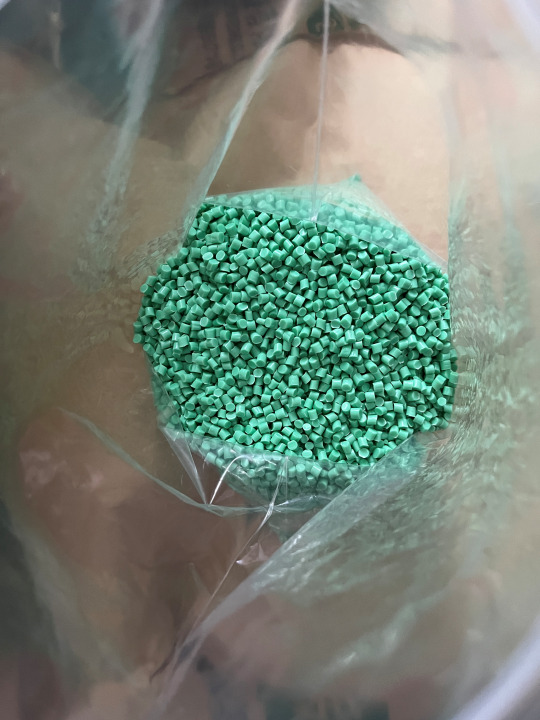


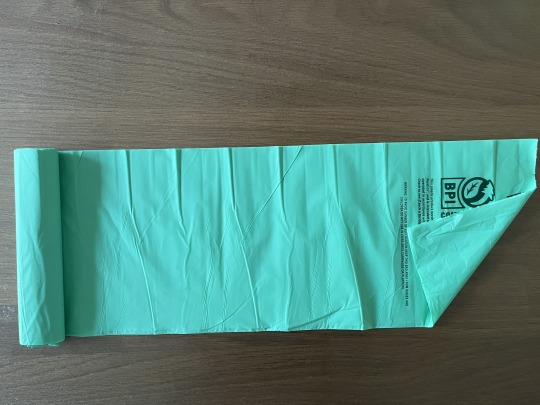
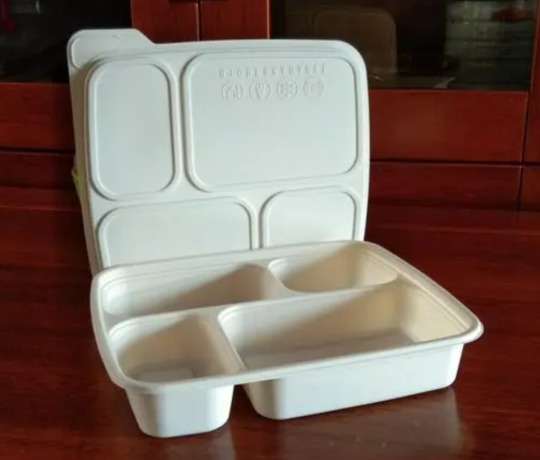
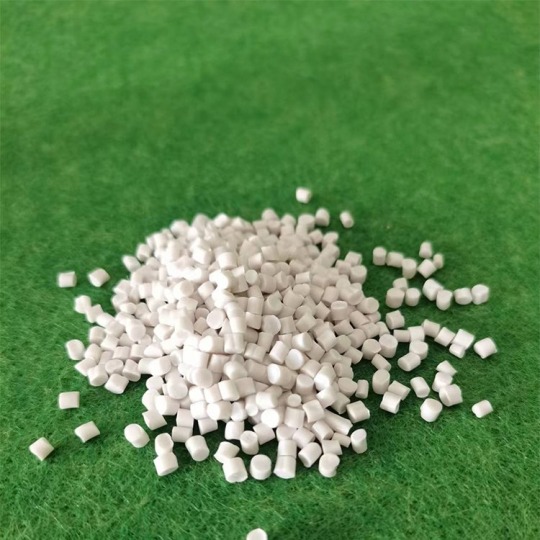
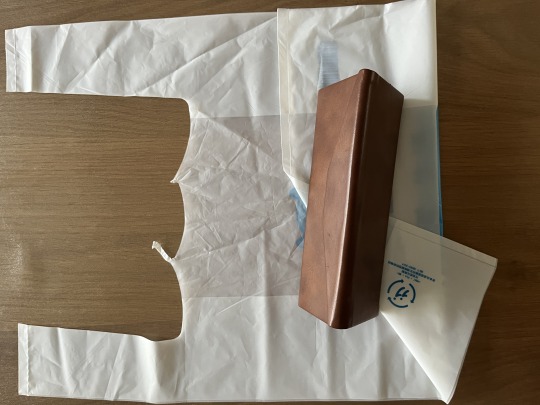
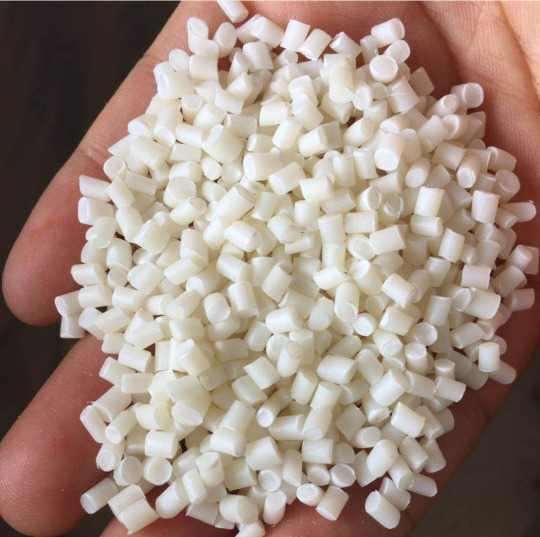
Biodegradable material-PBAT PLA resin It is mainly used in the production of disposable plastic bags, plastic tableware, express packaging, agricultural mulch film, medical supplies, agriculture, forestry, animal husbandry and fishery, etc. If you're interested in, pls contact me via: Mobile/WhatsApp/Wechat: 8615000766658 E-mail: [email protected]
#pbat#Biodegradable material-PBAT PLA resin#It is mainly used in the production of disposable plastic bags#plastic tableware#express packaging#agricultural mulch film#medical supplies#agriculture#forestry#animal husbandry and fishery#etc.#If you're interested in#pls contact me via:#Mobile/WhatsApp/Wechat: 8615000766658#E-mail: [email protected]
2 notes
·
View notes
Text
The customer service brain fatigue is real. Not specifically customer service, because I was working security at a bar, but at the beginning of my shift one time my brain short-circuited and I almost asked someone if they had their receipt. I had to pause, switch to English, and say it slowly because I could not for the life of me remember a)most of the words I needed to say in English, and b)the Icelandic word for ID, something I have known for YEARS. Bilingualism definitely makes this problem worse










#when I worked at a grocery store I would sometimes slip up and ask if someone wanted a bad and/or their receipt at the wrong time#I was annoyed when they passed a new law requiring us to move the bags from behind the checkout counter#something about saving plastic or something#idk#it made no sense because most places made their bags out of biodegradible and/or recycled plastic anyways#anyways it took some time but that eventual helped lessen the receipt/bag mix-up problem#I still know receipt in at least 5 languages and bag in 3#to be fair receipt is some variation of 'ticket' in a lot of languages and the three languages I can say bag in I speak to some degree#I probably know these in more languages if their cousin languages use similar words
85K notes
·
View notes
Text

Biodegradable Garbage Bags Manufacturers - Greendot
Greendot Biopak is a well-known company for biodegradable garbage bags manufacturers and exporters in Gujarat, India. These bags have an advantage in that they break naturally over time, as opposed to traditional plastic bags, which can survive for hundreds of years! Greendot Biopak cares about the environment, so offers a broad variety of eco-friendly products, not just bags. These products are made from organic items, so they are safe for the environment. Visit our site for buy - https://www.greendotbiopak.com/garbage-bag or call us at - +91-951-239-9155
#Biodegradable Products#Biodegradable Plastic Bags#Biodegradable Material#Compostable Garbage Bags#Biodegradable Food Packaging#Compostable Resins#Compostable Plastic#Compostable Plastic Bags#Biodegradable Product Manufacturer#Disposable Bags Manufacturer#Disposable Garbage Bags Manufacturer#Sanitary Disposal Bags Manufacturer#Biodegradable Products In India
0 notes
Text
#Vegetable Bags#garbage bag manufacturers in uae#biodegradable garbage bags#trash bags#plastic manufacturing companies in UAE
0 notes
Text
Impacts of Petroleum-Based Single-Use Plastics on Soil Fertility

Each year, billions of tons of plastic go to landfills or come to be clutter. That being said, let’s understand why compostable plastic can be an ideal solution.
1 note
·
View note
Text
Wait, where do you live that you still have enough plastic bags around the place to still have a traditional bag-of-bags?
It's been years since our kitchen bag-o-bags was reduced to nothing
(though this question has reminded me that my struggles to find something to do with the paper bags the online groceries come in is a long held tradition)
My new spare bag holder



Reduce, reuse, regurgitate!
#Plastic bags are the Before Times#If I want a lil plastic bag for general household activities like bin liners I have to Buy Them On Purpose#And you mostly get the biodegradable ones my sibling is probably allergic to and which can't be trusted with prolonged water contact#Plastic#Fiber craft#Crochet#My posts#Nostalgia
21K notes
·
View notes